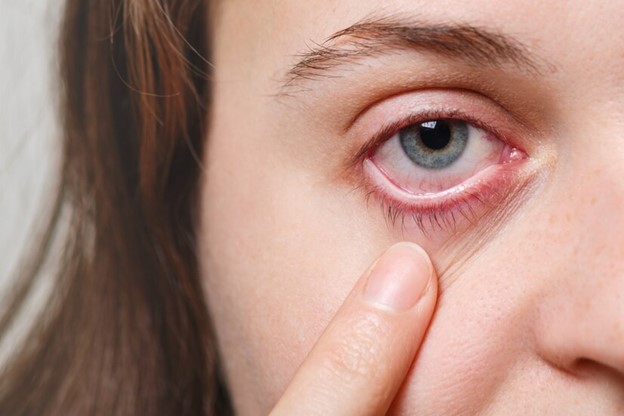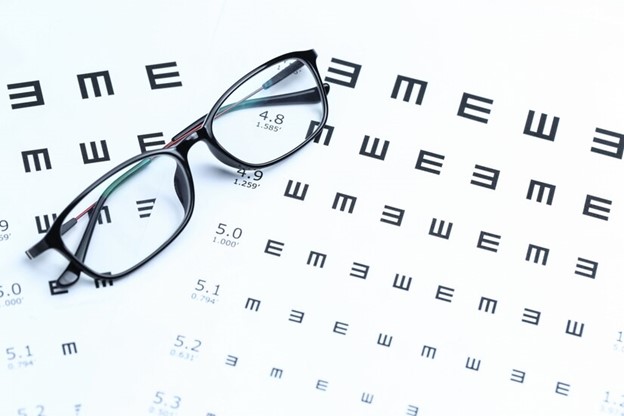Glaucoma & age-related macular degeneration TCM Treatment in Singapore.
What is glaucoma?
Glaucoma is a group of eye conditions that can damage the optic nerve. This is often tied to the build-up of pressure in the eye, but this condition can also take place with normal eye pressure. There are several types of glaucoma, with open-angle glaucoma being the most common.
This condition is also known as the “silent thief of sight” as it is often asymptomatic in the early stages. Symptoms can take the form of blurred vision, eye pain, and headaches. In severe cases, nausea and vomiting may even be present. If left untreated, glaucoma can lead to irreversible loss of vision.
What is age-related macular degeneration?
Age-related macular degeneration (AMD) is a degenerative eye disease that affects the central portion of the retina. This part is known as the macular and is responsible for providing sharp vision. As the name suggests, AMD is most commonly seen in ageing individuals and is the leading cause of vision loss in older age groups.
This condition is divided into two main types, dry AMD, and wet AMD. Dry AMD, also known as atrophic AMD, occurs slowly over several years. It causes the macular to become progressively thinner, leading to a gradual loss of vision. On the other hand, wet AMD is less common but greater in severity. This type of AMD causes faster vision loss; any dry AMD stage can turn into wet AMD.
The symptoms of this condition will vary depending on the stage it is in. In the early stages, AMD will not have any symptoms and often go undetected. It is only in the intermediate and late stages that signs such as blurred or distorted vision, straight lines appearing wavy, and trouble seeing in low lighting begin to appear.

What is TCM’s approach towards eye disorders such as Galucoma and Age-related Macular Degeneration?
Traditional Chinese Medicine (TCM), also referred to as Chinese medicine, views the body as a system of interconnected parts. According to TCM principles, the eyes are not isolated organs but as they are connected to the body, eye disorders are viewed as stemming from both internal and external factors.
What are the internal factors?
Internal factors are the organs in your body. Your eyes are not viewed as individual organs but as an extension of the liver. Let’s take a look at the common internal factors which can affect your eye health.
Liver imbalances
The liver is considered the primary organ associated with eye health. Therefore, it is common to find TCM treatments for eye disorders focusing on the organ. Imbalances in the liver, such as liver blood deficiency, or liver blood stagnation, are believed to affect the eyes.
Kidney deficiencies
Another organ that the eyes are closely related to is the kidney. It is said to store our “essence”, which can be changed into Qi and blood. Deficiencies and imbalances can lead to dark eye circles and eye bags.
Poor blood circulation
Proper blood circulation is important for maintaining eye health. Blood deficiency or stagnation may lead to weakened eye tissues and poor vision.

What are the external factors?
In TCM, there is also present what is known as the six pathogenic factors. These are environmental factors that are believed to invade the body and cause an imbalance. Each affects the eye differently:
Heat
Excessive heat in the body can be brought on by inflammation, stress, and environmental factors such as hot weather. This can lead to symptoms such as a burning sensation in the eyes, swelling, and redness.
Summer-Heat
Summer heat is an external factor that may be brought on by a hot day in Summer. It may come in the form of a heatwave, with individuals being unable to adapt to the condition. This causes them to develop symptoms such as inflammation and mucus discharge.
Wind
Wind is a common pathogen we are exposed to as it can arise from being in an air-conditioned room for too long.
Dryness
Dryness in the environment or the body can affect the eye, leading to symptoms such as dry eyes, irritation, and blurred vision.
Dampness
Dampness refers to an excess of moisture which could cause sticky or heavy discharge from the eyes and a feeling of heaviness in the eyes.
Cold
Cold is not only a product of winter, but an individual can be affected by this pathogen through being drenched in the rain, or prolonged exposure to water, which can lead to eye discomfort.

What are TCM’s treatments for glaucoma, age-related macular degeneration and other eye disorders?
Acupuncture
Acupuncture is a procedure where fine needles are inserted into specific points of the body. This treatment for eye disorders promotes the flow of Qi and blood around the eyes. By targeting specific acupuncture points of the eyes and meridians connected to them, this treatment aims to nourish the eyes and alleviate symptoms.
One of our patients, C. Woo, provided us with a testimony of their experience with acupuncture for glaucoma:
“I started seeing Pat @ICU over 15 years ago. The condition of my eyes from glaucoma was dire. While I was initially sceptical about the benefits of traditional Chinese medicine for my situation my deterioration has stabilised despite a very demanding work life. The treatment includes acupuncture which is relatively painless and medicine. I believe her treatment has helped while also seeing a glaucomologist at the same time.”
Acupuncture may be used for glaucoma as a treatment to promote better fluid drainage around the eyes, reducing pressure, and potentially slowing down its progression. This therapy is often combined with other TCM treatments for glaucoma.
It is also part of TCM remedies for age-related macular degeneration. According to TCM, the liver is directly connected to the eyes. It plays a crucial role in facilitating the smooth flow of Qi and blood between both organs. When acupuncture is applied for AMD, certain acupoints such as Jingming (BL1) will be stimulated to encourage the flow of Qi and blood to the eyes.
Herbal remedies
Herbal remedies may be prescribed for eye disorders such as glaucoma. The herbs used are believed to reduce pressure on the macula and slow degeneration. Therefore, you might be able to find goji berries and chrysanthemums included in the mix of herbs. Both herbs are used for their ability to soothe the eyes and reduce intraocular pressure.
When it comes to AMD, the remedies will seek to improve circulation and reduce inflammation. You might find Bilberry, along with other herbs containing lutein and zeaxanthin. These are believed to protect vision and alleviate symptoms of the condition.
Dietary therapy
Food is not just to sate our appetites when we are hungry. In TCM, they are viewed as having specific energetic qualities that could affect the body’s balance of energy. It does not only take into account the type of food but also its taste, colour, how it was cooked, and the “element” it corresponds to. Dietary therapy has become a part of TCM’s treatment for eye disorders.
An example of this could be the recommendation of foods that can strengthen the liver and kidney, as they are organs closely related to the eyes. This therapy is usually personalised according to each individual’s constitution, eye condition, and lifestyle habits. Therefore, it is recommended to speak with a doctor to develop a dietary plan that is tailored to your specific needs.
Would you like to learn more about TCM for eye disorders?
If you are interested in learning more about TCM for eye disorders, contact us at ICU Eye Care Unit and we will be in touch with you soon.

